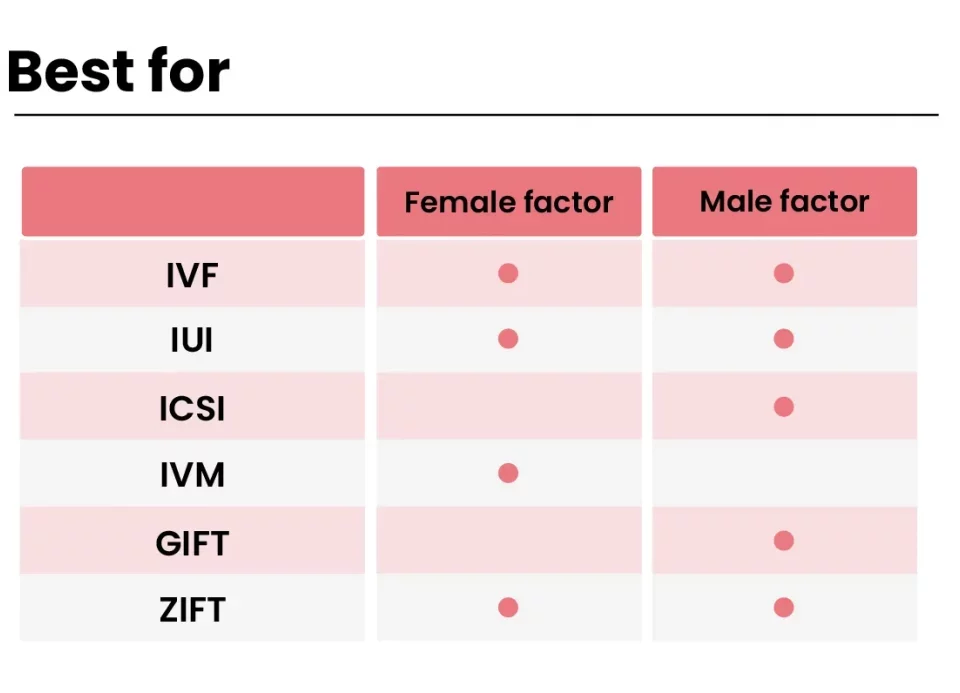How Much Does IVF with Progyny Cost? Your Ultimate Guide to Understanding the Price Tag
April 20, 2025
How to Determine Your Due Date After IVF
April 20, 2025Is IVF Biblical? Exploring Faith, Science, and Family

Is IVF Biblical? Exploring Faith, Science, and Family
When you’re dreaming of starting a family but facing roadblocks, in vitro fertilization (IVF) might pop up as an option. It’s a big decision, though—emotionally, financially, and, for many, spiritually. If you’re a Christian wondering whether IVF fits with your faith, you’re not alone. People have been asking this question for years, and it’s worth digging into. The Bible doesn’t mention IVF directly (no surprise there—it’s a modern invention!), but it does talk a lot about life, family, and God’s role in creation. So, let’s walk through this together, exploring what Scripture says, what Christians think, and how you can make a choice that feels right for you.
This isn’t just about yes or no. It’s about understanding the heart of the issue—why it matters, what’s at stake, and how faith and science can meet in the middle. We’ll cover the big questions, like when life begins and what happens to extra embryos, while also diving into stuff you might not find everywhere else—like how IVF impacts marriages or what ancient infertility stories can teach us today. Ready? Let’s get started.
What Is IVF, Anyway?
IVF stands for in vitro fertilization, which sounds fancy but just means “fertilization in glass.” Basically, doctors take an egg from a woman and sperm from a man, mix them in a lab to create an embryo, and then place that embryo into the woman’s womb to grow into a baby. It’s a way to help people who can’t get pregnant naturally, whether because of blocked tubes, low sperm count, or other issues. Since the first IVF baby, Louise Brown, was born in 1978, over 10 million kids have come into the world this way. Pretty amazing, right?
But here’s where it gets tricky for some Christians: IVF isn’t natural conception. It involves needles, hormones, and petri dishes—not exactly the “be fruitful and multiply” picture we might imagine from Genesis. Plus, it often creates more embryos than get used, raising questions about what happens to the leftovers. That’s why so many wonder: Does this line up with what God wants?
Does the Bible Say Anything About IVF?
The short answer? No, the Bible doesn’t mention IVF. It couldn’t—IVF didn’t exist when the Bible was written. But that doesn’t mean Scripture is silent on the ideas behind it. The Bible is full of stories and principles about life, kids, and God’s design for families. Let’s look at a few key spots people often bring up.
Life Begins When?
One big debate is when life starts. Psalm 139:13 says, “For you created my inmost being; you knit me together in my mother’s womb.” This verse paints a beautiful picture of God forming us before we’re born. Some Christians take it to mean life begins at conception—when sperm meets egg—whether that happens in a womb or a lab. If that’s true, then every embryo made in IVF is a life with a soul, which makes things like freezing or discarding embryos a serious issue.
But not everyone agrees. Some point out that the Bible focuses on life in the womb, not in a petri dish. They argue that conception outside the body might not carry the same weight until the embryo is implanted and growing. It’s a gray area, and where you land on it shapes how you see IVF.
God’s Command to Multiply
Genesis 1:28 tells Adam and Eve to “be fruitful and increase in number.” For lots of Christians, this is a green light to have kids however you can—including IVF. If God wants families to grow, isn’t using science to make that happen a good thing? After all, doctors help us fix broken bones or cure diseases—why not infertility?
On the flip side, some say this command assumes natural conception within marriage, not lab-made babies. They worry IVF steps too far from God’s design. It’s a tension worth thinking about: Is IVF a gift from God to fulfill His will, or a shortcut that misses the point?
Infertility in the Bible
Here’s something cool: The Bible is packed with stories of couples who couldn’t have kids—until God stepped in. Sarah laughed when God promised her a son at 90 (Genesis 18:12). Hannah prayed so hard for a baby that a priest thought she was drunk (1 Samuel 1:13). Elizabeth, Mary’s cousin, was “barren” until she had John the Baptist (Luke 1:7). In every case, God worked a miracle.
These stories show God cares about infertility. But they also raise a question: Should we wait for a miracle like they did, or use tools like IVF? Back then, they didn’t have fertility clinics. Today, we do. Does that change the game?
What Do Christians Think About IVF?
Christians aren’t all on the same page here. Different groups have different takes, and it’s helpful to know where they’re coming from.
Catholics Say No
The Catholic Church has a clear stance: IVF is a no-go. Why? They believe every baby should come from the “marriage act”—sex between a husband and wife. IVF separates making babies from that act, which they see as against God’s plan. Plus, they’re worried about extra embryos being frozen or thrown out. The Church’s official teaching, found in documents like Donum Vitae (1987), says life must be protected from conception, and IVF often risks that.
Protestants Are Split
Protestants—like Baptists, Methodists, or evangelicals—don’t have one official rule. Some say IVF is fine if it helps a married couple have kids and no embryos are harmed. Wayne Grudem, a big-name evangelical thinker, argues it’s morally okay as long as you don’t destroy embryos. Others, like Matthew Lee Anderson, say it’s wrong because it messes with the natural link between sex and procreation.
A 2023 survey by the Cultural Research Center found that 62% of American evangelicals think IVF is morally acceptable, but 25% aren’t sure, and 13% say it’s wrong. That split shows how tricky this is even within one group.
Real Stories, Real Faith
Take Emily, a 34-year-old from Texas. She and her husband tried for years to have a baby. “We prayed, we waited, but nothing happened,” she says. They turned to IVF, had one embryo implanted, and now have a 2-year-old son. “I believe God gave us the brains to invent IVF,” she told me. “My son’s a miracle, just like Isaac was for Sarah.”
Then there’s Mark, a pastor in Ohio. He’s against IVF because his church lost a member whose embryos were discarded after a divorce. “Those were lives to me,” he says. “I can’t support a process that treats them like spare parts.”
Both are Christians. Both love God. But they see IVF totally differently.
The Embryo Question: What Happens to the Extras?
Here’s where IVF gets sticky for a lot of folks: the embryos. In a typical IVF cycle, doctors make 10-15 embryos to boost the odds of success. Maybe 1 or 2 get implanted, but what about the rest? They might be frozen, donated, used for research, or—tough as it is to say—destroyed. In the U.S., over 1 million embryos are frozen right now, according to the CDC. That’s a lot of potential lives on ice.
Why It Matters
If you believe life starts at conception, those frozen embryos are people—tiny, unique humans with DNA and potential. Freezing them indefinitely or tossing them out feels wrong to many Christians. It’s why some call IVF a “slippery slope” to treating life like a commodity.
Options You Might Not Know
But there are ways to handle this that don’t get talked about enough:
- Single Embryo Creation: Some couples ask doctors to fertilize just one egg at a time. It’s less efficient and costs more, but it avoids leftovers. Success rates drop a bit—around 30% per cycle for women under 35, per the CDC—but it’s a trade-off for peace of mind.
- Embryo Adoption: Ever heard of “snowflake babies”? Couples can donate unused embryos to others. Over 12,000 kids have been born this way since the 1990s, says Nightlight Christian Adoptions. It’s like giving those embryos a chance at life instead of leaving them frozen.
- Natural Cycle IVF: This skips the heavy drugs and harvests only the egg your body makes naturally each month. It’s gentler and usually means fewer embryos—sometimes just one. A 2022 study in Fertility and Sterility found it’s gaining traction among faith-based clinics.
These options aren’t perfect, but they show there’s more to IVF than the standard playbook.
How Does IVF Affect Marriage?
One thing you won’t find in most articles is how IVF shakes up a marriage. It’s not just about babies—it’s about you and your spouse, too. The Bible says in 1 Corinthians 7:4 that in marriage, “the wife’s body does not belong to her alone but also to her husband,” and vice versa. It’s about teamwork. So, how does IVF fit in?
The Emotional Rollercoaster
IVF is intense. Shots, appointments, waiting for results—it’s a lot. A 2021 study in Human Reproduction found that 40% of couples reported higher stress during IVF, and 15% said it strained their relationship. “It’s you and your spouse against infertility,” says Lisa, who did IVF in 2023. “But sometimes it felt like we were against each other.”
✔️ Tip: Talk it out. Set aside time each week to check in—no doctors, no pressure, just you two.
❌ Don’t: Bottle it up. Ignoring the stress can build walls.
The Physical Toll
For women, IVF means hormones that can mess with your mood and body. Men might feel helpless watching their wife go through it. Ephesians 5:28 says husbands should love their wives “as their own bodies.” If the process hurts her, it’s worth asking: Is this loving her well?
✔️ Tip: Research together. Knowing what’s coming—like ovarian hyperstimulation risks (affects 1-5% of cycles, per the NIH)—can help you both prepare.
❌ Don’t: Rush in blind. Understand the physical cost before you sign up.
Interactive Quiz: Where Do You Stand?
Let’s pause for a sec. Grab a pencil or just think it over—here’s a quick quiz to see how you’re feeling about IVF so far:
- Do you think life begins at conception (sperm + egg), even in a lab?
- A) Yes
- B) No
- C) Not sure
- Is it okay to use science to have kids if you can’t naturally?
- A) Totally fine
- B) Only if it respects life
- C) No, it’s unnatural
- What should happen to extra embryos?
- A) Freeze them forever
- B) Donate or adopt them out
- C) It’s too complicated
Tally your answers. Mostly A’s? You might lean pro-IVF. Mostly B’s? You’re wrestling with the ethics. C’s? You’re still figuring it out—no shame in that! This isn’t about right or wrong—it’s about what sits right with your faith.
Science Meets Faith: What’s New in 2025?
IVF isn’t standing still, and neither should our thinking. Here’s what’s fresh as of April 2025, based on the latest buzz and research:
Egg Freezing Twist
Instead of freezing embryos, some clinics now freeze unfertilized eggs. Why? No conception happens until you’re ready to implant, dodging the “extra embryo” dilemma. A 2024 study in Reproductive BioMedicine Online showed success rates are climbing—up to 40% for women under 38. It’s not mainstream yet, but it’s a game-changer for Christians who want fewer ethical headaches.
AI Picks the Best Embryos
Artificial intelligence is helping doctors spot the healthiest embryos without guessing. A 2025 trial from Yale found AI boosts live birth rates by 15% compared to human selection. It’s not about “designer babies”—it’s about giving each embryo the best shot. Cool, right?
Faith-Friendly Clinics
More clinics are catering to religious folks. In 2024, the American Society for Reproductive Medicine noted a 20% rise in “faith-based IVF” programs that limit embryo creation or offer adoption plans. If you’re near a big city, check if one’s nearby—they’re popping up fast.

The Money Side: IVF’s Hidden Cost
Let’s talk cash. IVF isn’t cheap—$12,000 to $17,000 per cycle in the U.S., says the CDC. Most insurance doesn’t cover it, and you might need 2-3 tries. That’s $30,000+ out of pocket for a maybe. For Christians, this hits another nerve: Are we stewarding God’s money well?
A Little Math
Say you spend $15,000 on one cycle. If it works, awesome. If not, you’re out big bucks. A 2023 Pew survey found 1 in 5 IVF users tapped savings or took loans. Compare that to adoption—about $20,000-$40,000 total, with a guaranteed kid. Tough call, but worth weighing.
✔️ Tip: Budget like it’s a mission trip. Save up, pray over it, and don’t drain your future.
❌ Don’t: Go broke chasing it. God’s provision matters too.
What About Adoption Instead?
Speaking of adoption, it’s a road less traveled in IVF talks but super relevant. The Bible loves adoption—think Esther or Jesus Himself, raised by Joseph. James 1:27 calls caring for orphans “pure religion.” Over 400,000 kids are in U.S. foster care right now, per the AFCARS report. Could adoption be your Plan B—or even Plan A?
IVF vs. Adoption: A Quick Look
| Factor | IVF | Adoption |
|---|---|---|
| Cost | $12K-$17K per cycle | $20K-$40K total |
| Success Rate | 45% under 35, per CDC | 100% (you get a child) |
| Timeline | Months per cycle | 1-3 years |
| Ethical Issues | Embryo concerns | None |
Emily, the mom from Texas, considered adoption but wanted “that pregnancy bond.” Mark, the pastor, adopted two kids after rejecting IVF. “It’s not second-best,” he says. “It’s God’s best for us.”

A Deeper Dive: IVF and God’s Sovereignty
Here’s something you won’t see everywhere: IVF bumps up against trusting God. The Bible shows God opening wombs (Genesis 30:22) and closing them (1 Samuel 1:5). If He’s in charge, should we force the issue with science? Or is IVF part of His provision, like medicine for a sick heart?
Think of Hannah again. She didn’t have IVF, but she poured her heart out to God. He answered with Samuel. Today, we’ve got more options, but the question lingers: Are we leaning on God or our own smarts? Maybe it’s both—using what He’s given us while trusting Him with the outcome.
Poll Time: What’s Your Take?
Let’s hear from you! Pick one and drop your thoughts in the comments (imagine this is a blog):
- IVF is a blessing from God to build families.
- IVF is okay but only with strict rules (like no extra embryos).
- IVF goes against God’s natural design.
No pressure—just a chance to chew on it together.
Practical Steps: Making Your Choice
So, you’re thinking about IVF. How do you decide? Here’s a step-by-step guide to keep your faith front and center:
- Pray First: Ask God for wisdom. James 1:5 promises He’ll give it if you ask.
- Read Up: Dig into Scripture—Psalm 139, Genesis 1-2, Exodus 20. See what vibes with you.
- Talk to Your Spouse: This isn’t solo. Agree together, like 1 Corinthians 7 says.
- Ask a Pastor: Get input from someone who knows the Bible and your story.
- Research Options: Look into single embryo IVF or egg freezing if extras bug you.
- Set Limits: Decide upfront—no discarding, maybe adoption instead. Stick to it.
✔️ Pro Tip: Write down your “why.” Is it love for a child or fear of missing out? Clarity helps.

Wrapping It Up: Your Faith, Your Call
IVF’s a big deal—no denying that. The Bible doesn’t give us a rulebook for it, but it gives us principles: life’s precious, marriage matters, God’s in control. Whether you see IVF as a miracle tool or a step too far, it’s your journey with God. Emily’s son and Mark’s adopted kids both show family can grow in wild, beautiful ways.
What’s next? Keep asking questions. Talk to people who’ve been there. And don’t rush—peace comes when faith and choice line up. Whatever you pick, you’re not alone—God’s walking with you, every step.

